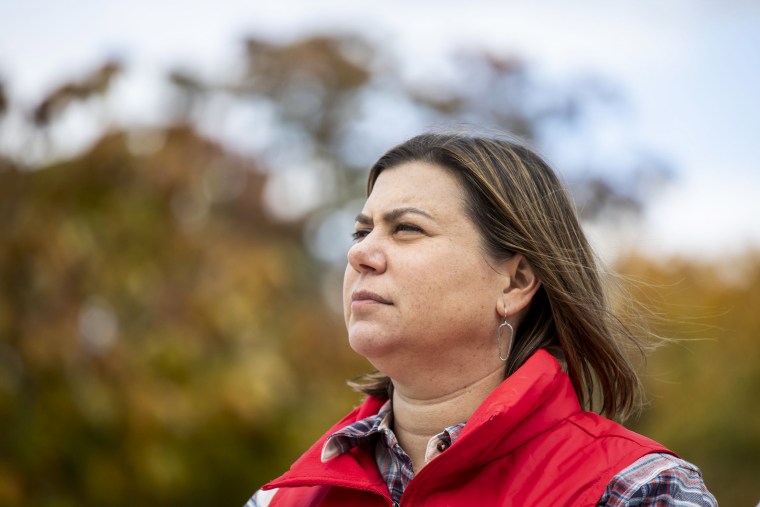Democratic Rep. Katie Porter’s entrance into the California Senate race also opens up her competitive House seat, and that isn’t the only race that could complicate the fight for the House majority.
Democrats currently need a net gain of just five seats to take control of the House in 2024. Any competitive seat where a lawmaker is either retiring or seeking higher office deprive Democrats of the advantages incumbents typically bring to their races, including fundraising prowess and high name recognition.
Porter’s exit means Democrats won’t have an incumbent with those advantages in the competitive 47th District in Southern California. President Joe Biden would have carried the district by 11 points had the new congressional map been in place in 2020, per Daily Kos Elections, while Porter won re-election by just 3 points in 2022.
Michigan Rep. Elissa Slotkin is also weighing a run for her state’s open Senate seat. She told MSNBC on Tuesday that she is “seriously considering” a run but does not have a timeline for making her decision.
But if Slotkin does run, that would also open up another competitive seat. Michigan’s 7th District was the most expensive House race in 2022, with more than $30 million spent on ads, per the ad tracking firm AdImpact. Slotkin won a third term by 5 points, outrunning Biden, who would have won the district by half a percentage point.
Porter and Slotkin were both elected in 2018, and both hare strong fundraisers. Porter raised a whopping $25.7 million in the 2022 election cycle, and her campaign had $7.7 million on hand as of Nov. 28. Slotkn raised $9.9 million, and her campaign had $1.6 million in its account.
Arizona Rep. Greg Stanton has also been reportedly weighing a run for Senate, with Sen. Kyrsten Sinema leaving the Democratic Party to become an independent (Sinema has not yet said if she’s running for re-election). Republicans targeted Stanton last year, but he won re-election by 12 points, slightly outrunning Biden, who would have carried the district by 10 percentage points.
But it’s not clear if Stanton would want to take on fellow Democratic Rep. Ruben Gallego in a primary. Gallego, who hails from a solidly Democratic district, has been openly weighing a Senate run as well and recently bolstering his campaign staff.
Senate races could also complicate Republicans’ path to holding onto their slim majority, with GOP House members potentially eyeing runs against the
While several of those Republicans represent deeply Republican districts, one exit that could create some GOP heartburn is in Montana, where GOP Rep. Ryan Zinke is considered a potential Senate candidate. Zinke won the state’s 1st District by just 3 percentage points in November, and former President Donald Trump would have won the district by 7 points in 2020.
But an open House race doesn't necessarily mean the party will lose that seat. Last year, Democratic Reps. Rep. Tim Ryan and Conor Lamb left their competitive House districts to run for Senate in Ohio and Pennsylvania, but Democrats held onto both of those districts in November.

